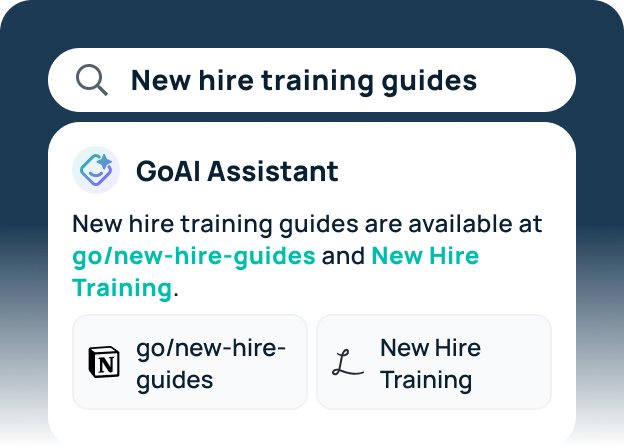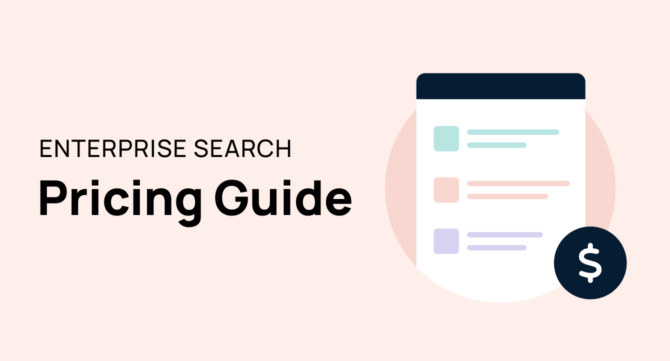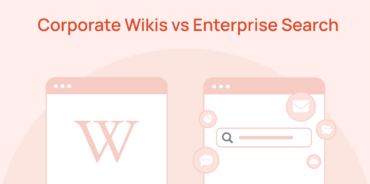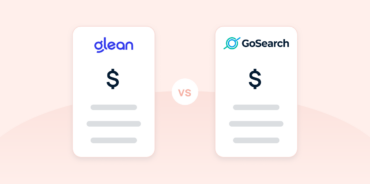Enterprise search has become an essential solution for organizations seeking seamless access to information across systems. However, enterprise search pricing can vary widely depending on capabilities, scalability, and integrations.
In this blog, we’ll explore the different enterprise search pricing structures, key factors influencing cost, and notable vendors in the space to help you make a more informed decision.
Types of Enterprise Search Pricing Models
- Subscription-Based Pricing: Many enterprise search providers offer subscription plans, typically paid monthly or annually. This model is ideal for organizations that want predictable costs, although it may include variable charges based on usage or storage.
- Usage-Based Pricing: Some vendors bill based on the volume of data indexed or the number of searches conducted. This model is popular among organizations with fluctuating search needs or high indexing requirements.
- Feature-Based Pricing: Enterprise search vendors may charge based on the feature set required. For instance, advanced capabilities like machine learning, generative AI chat, and user analytics might come with higher-tier plans.
- Per User/Per Seat Licensing: In this model, costs are tied to the number of users accessing the search platform. It works well for enterprises with a clear idea of their user count but can become costly with significant user expansion.
- Custom or On-Premises Pricing: Vendors may offer custom pricing for tailored solutions or on-premises deployments. This option is best for large organizations with unique data security requirements or advanced customization needs.
The most common is per-user, per-seat-based pricing models with volume discounts based on user count tiers.
Factors Influencing Enterprise Search Pricing
- Data Volume and Indexing Requirements: The more data a solution needs to index, the higher the cost, especially in usage-based or data-volume pricing models.
- Integration Complexity: Solutions that integrate with various third-party applications, such as CRM, ERP, or content management systems, may be more expensive.
- Advanced Features: Enhanced search capabilities, such as NLP, semantic search, AI chat, or AI-driven insights, can add to the cost.
- Scalability Requirements: Companies expecting substantial growth may require more flexible, scalable solutions that can increase costs in the long run.
Top Vendors and Their Pricing Overviews
Here’s a look at some leading enterprise search vendors and how they approach pricing:
- GoSearch
- Pricing Model: GoSearch provides a flexible pricing structure, including a free trial. Pricing is a per-user, per-seat model with AI chat included. Volume discounts are also offered.
- Standout Features: Advanced semantic search capabilities, seamless integration with 100s of workplace applications, generative AI chat and AI agents.
- Ideal for: Organizations that want to simplify and enhance their workplace search experience with AI-driven insights, multi-modal search, document summaries, a no-code AI agent builder, and an AI chatbot assistant.
- Glean
- Pricing Model: Glean offers per-user and usage-based pricing, with costs determined by user access and usage volume across cloud applications.
- Standout Features: Focus on search, knowledge discovery, and AI recommendations.
- Security Risks: Customers have indicated sensitive information is at risk for exposure due to indexing all company data.
- Ideal For: Companies that prioritize a user-friendly interface for cross-cloud document discovery.
- What to Watch Out For: Large renewal upcharges and AI usage line item surprises.
- Elastic (Elasticsearch)
- Pricing Model: Elastic offers a combination of free, open-source access and paid cloud-based tiers. The Elastic Cloud pricing model is subscription-based and varies based on cloud provider, data volume, and cluster configuration.
- Standout Features: Real-time search, log analysis, and observability tools.
- Ideal For: Organizations looking for highly customizable, scalable solutions with open-source flexibility.
- Microsoft Azure Cognitive Search
- Pricing Model: Microsoft’s pricing model is tiered based on the number of indexes, document limits, and query volumes. Options include Basic, Standard, and High Availability.
- Standout Features: AI-powered search capabilities, natural language processing, and integration with Azure ecosystem.
- Ideal For: Organizations already using Microsoft products and looking for seamless integration within the Azure ecosystem.
- What to Watch Out For: Limited integrations with solutions outside the Microsoft product suite.
- Algolia
- Pricing Model: Algolia offers both subscription and usage-based models, with costs varying by operations per month and indexing limits.
- Standout Features: Optimized for fast search and personalization, emphasizing speed and developer-friendliness.
- Ideal For: Enterprises that prioritize fast, responsive search capabilities and require high customization.
- Google Cloud Search
- Pricing Model: Google Cloud Search follows a per-user pricing model, with options to scale across G Suite and third-party data sources.
- Standout Features: Machine learning-driven search, G Suite integration, and content indexing.
- Ideal For: Companies using Google Workspace seek a highly integrated search experience.
- What to Watch Out For: Limited integrations with solutions outside the Google product suite.
- Lucidworks Fusion
- Pricing Model: Lucidworks typically offers custom pricing based on deployment requirements, indexing needs, and AI functionalities.
- Standout Features: AI-powered insights, recommendations, and advanced analytics for an enhanced search experience.
- Ideal For: Organizations in need of AI-powered analytics and user personalization.
- Coveo
- Pricing Model: Coveo offers several subscription tiers, including pay-as-you-go options, where pricing depends on the number of indexed items and query volume.
- Standout Features: Personalized search, recommendations, and deep analytics with an AI-driven approach.
- Ideal For: Enterprises with a strong focus on customer insights and personalization.
- What to Watch Out For: Prices can quickly increase as data and query volume grows.
Choosing the Right Enterprise Search Solution
When evaluating enterprise search solutions, consider your organization’s specific needs, such as data volume, user scale, and integration requirements. Start by identifying which pricing model aligns with your budget and operational needs. A vendor offering flexible or tiered pricing may be beneficial if your organization’s search requirements are expected to grow.
The enterprise search landscape offers varied solutions to meet unique business demands, so carefully weigh the features and pricing models to ensure your choice provides both the functionality and scalability to grow with your organization.
Search across all your apps for instant AI answers with GoSearch
Schedule a demo

















